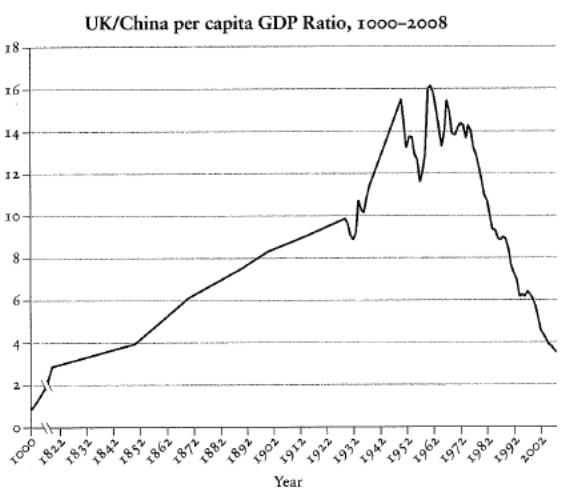“Our job is to find a few intelligent things to do, not to keep up with every damn thing in the world.”
– Charlie Munger.
According to the French author and pilot Antoine de Saint-Exupéry, a designer knows he has achieved perfection not when there is nothing left to add, but when there is nothing left to take away. The great value investors know this, too. The world of the equity investor is a big place. An informal calculation puts the number of listed companies in the world at roughly 50,000. That is clearly too big a number for any individual or organisation to analyse in any depth. So how to sort the wheat from the chaff ? How, in other words, to sort the Apples from the lemons ?
It helps to know what you should be looking for. We would suggest the primary filter contains an assessment of just three components:
- Business
- People
- Price.
To be worthy of consideration for investment, all three should be exceptional.
- Does the business incorporate what Warren Buffett described as a “wide moat” – a future-proofed barrier to competition; a compelling ‘edge’ that separates it from its peers, somewhat akin to a monopoly ?
- Are the managers of the business principled, eminently capable, and shareholder-friendly ?
- Are the shares of the business available at a meaningful, almost tangible discount to its inherent worth ?
If all three characteristics are on offer, prospects for a successful investment are hugely skewed in your favour.
Some of these assessments are subjective. Investing is not an exact science, because people are not 100% automatons, and businesses are run by people, and their products and services are sold to people. Homo economicus does not exist, except in economics courses. Nevertheless, we would suggest that on this sort of rough and ready screening, 95% of listed companies fall away, having failed to make the cut. This sort of screening saves an inordinate amount of time.
Another way to maximise one’s firepower as an investor and address as much of the investible universe as possible is to delegate at least some of the responsibility for finding these companies to a sufficiently qualified specialist value fund manager with the right mind-set – especially if one is interested in far-flung territories. But again, most of the fund management universe is likely to be unfit for the task. Why ? The following quotation from Jeremy Grantham explains why:
“The central truth of the investment business is that investment behaviour is driven by career risk. In the professional investment business we are all agents, managing other people’s money. The prime directive, as Keynes knew so well, is first and last to keep your job. To do this, he explained that you must never, ever be wrong on your own. To prevent this calamity, professional investors pay ruthless attention to what other investors in general are doing. The great majority “go with the flow,” either completely or partially. This creates herding, or momentum, which drives prices far above or far below fair price. There are many other efficiencies in market pricing, but this is by far the largest.”
The fund management business is obsessed with scale. As in any other profession dominated by men, size matters. The more assets under management, the more fees for the manager. But strict value investing, of the sort practised by the likes of Ben Graham, has natural limits to capacity. (This likely explains in part why Berkshire Hathaway’s best investment days were its earlier ones.) So in our own practice, all things being equal, we favour working with fund managers who are willing to close their funds rather than sacrifice investment performance in the cause of building scale.
We would suggest that 95% of fund managers, too, fall outside the realm of true value investing, for reasons of career risk, a fundamental misalignment of interests with their investors, or for other mostly commercial reasons. Hence the reference to Saint-Exupéry. We are not looking to add, but to take away. We want to compress our target market, not to make it as wide as possible.
In this interview extract, value manager Jean-Marie Eveillard describes the current environment for finding value in the markets today as like trying to find needles in haystacks. He touches on the difficulties of value investing, some of which are psychological, and some of which have to do with a misalignment of discipline and patience between client and manager. No investment strategy works every year, and no investment strategy ever will. But true value investing probably has a greater claim to success versus any other strategy over the medium and longer term. Whether clients are capable of waiting for the medium and longer term is another question.
We came across an intriguing fund manager in Asia a few months ago who neatly addressed the critical issue. There are lots of things to be genuinely worried about in markets today. The trick, as per Saint-Exupéry again, is to remove all those things that we simply cannot do anything about, that are not in our power to influence or even truly anticipate. The owner of a biscuit company, he said, “doesn’t sit fretting about Portuguese debt [or Grexit, or Brixit, or a rise in US interest rates..] but simply worries about selling more biscuits than the guy down the road.”
So we concentrate on stripping away, not adding, on paring away the irrelevant until we can focus our energies on finding the handful of exceptional businesses, at exceptional values, or exceptional fund managers, that offer us a “margin of safety” and the prospect of meaningful capital growth at relatively low risk. Jean-Marie Eveillard may be being overly pessimistic. The numbers of such opportunities may be small, but they are most certainly out there (most notably in Asia, and especially in Japan). The thrill of the chase, and of finding them, is half the fun.




